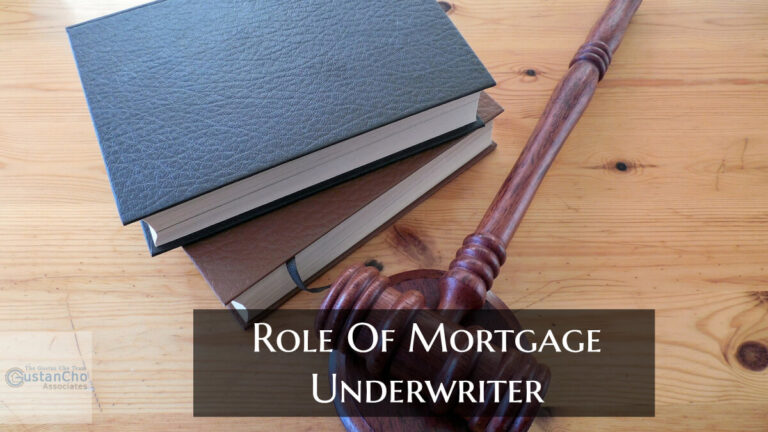Steps Leading To Mortgage Closing For Purchase And Refinance
This ARTICLE On Steps Leading To Mortgage Closing For Purchase And Refinance Was PUBLISHED On February 25th, 2020
The mortgage process takes time.
- Most mortgage closings take 30 days or less at Gustan Cho Associates
- The closing takes place once the mortgage underwriter issues a clear to close
- A clear to close is when the mortgage underwriter has reviewed all documents and credit file of the borrower
- A clear to close is issued when the mortgage underwriter signs his and/or her stamp of approval for the lender to fund the loan
- It means the borrower has met all lending guidelines and/or lender overlays
In this article, we will discuss and explain the overall mortgage process leading to a clear to close. After the clear to close is issued, the mortgage company’s closing department will prepare the docs and coordinate the closing with the title company.
The Clear To Close And The Steps Leading To Mortgage Closing
The mortgage underwriter will issue a clear to close once they have thoroughly reviewed the following:
- The real estate purchase contract
- The borrower’s credit scores
- The borrower’s credit history and credit report
- All asset, debt, and payment history
- Has run a third-party national public records search to make sure there are no judgments and/or tax-liens that is out there that is not reporting on the credit report
- Employment, employment history, and verification of employment
- 60 days of bank statements
- Cash-to-close
- Other pertinent documents and/or other information
In this article, we will discuss and cover the mortgage process on the Steps Leading To Mortgage Closing For Purchase And Refinance.
The Start Of The Home Buying Process And The Steps Leading To Mortgage Closing
The majority of home buyers need a mortgage to purchase a home.
- The very first step in the home buying process is to get qualified for a home loan by a loan officer
- The loan officer will qualify borrowers on how much home they qualify for
- The majority of home buyers are buyers of owner-occupant primary homes
- However, homebuyers often purchase second homes and/or investment properties as well
- After the loan officer reviews the borrower’s credit, credit scores, income, assets, and debt, the loan officer will issue a pre-approval letter
- Armed with a solid pre-approval letter, the home buyer can start shopping for a home
- The loan officer should explain the steps leading to mortgage closing
- Unfortunately, there are home buyers that go to the home loan closing blindly without knowing what to expect
We will explain the most frequently asked questions about the steps leading to mortgage closing in the following paragraphs.
Avoid Stress By Understanding The Mortgage Process
Most folks do not understand the home loan closing process. It is not every day they close on a home mortgage. However, one of the best ways of avoiding stress during the home buying process is by understanding the mortgage process.
The home buying and mortgage process today is not the same as it was 10 years ago. Mortgage regulations and lending guidelines keep on changing. Many times, mortgage regulations and lending guidelines change without notice. It is the loan officer’s job to make sure borrowers understand the overall mortgage process leading to the home loan closing.
Steps Leading To Mortgage Closing: How Long Does The Home Loan Closing Take?
When a home buyer makes a purchase offer, the tentative closing date will be listed.
- The closing date is the day when the seller officially transfers ownership of the home to the new home buyer
- The closing date normally varies but most home closings should be within 30 to 45 days of the purchase contract
- In general, short-sale homes take substantially longer to close than regular homes
Gustan Cho Associates can make exceptions and close home loans in 21 days or less.
Cash-To-Close
How much money do I need to bring to closing?
- This is a very frequently asked question
- The exact amount of cash-to-close will not be known until the title company has all the figures
- This is normally done after the lender issues a clear to close
- However, the borrower will have a tentative figure on how much will be needed to close
- This is done during the initial step of the mortgage process
The mortgage underwriter will not issue a clear to close if the borrower did not have sufficient funds.
What Should Borrowers Do To Prepare For A Mortgage Closing
Your loan officer should keep you updated on what to do prior to entering a home purchase contract. It is not just the mortgage loan officer the borrower will be working with. The borrower will have a team of professionals working together. The team normally consists of the following real estate professionals:
- Real estate attorney
- The real estate agent
- The mortgage loan officer and its associates such as the loan officer assistant, mortgage processor, underwriter, closer, and staff
- Escrow officer
- Homeowners insurance agent
- The home inspector and appraiser
- Title insurance agent
- Any other real estate professional and/or third-party vendor
The real estate agents are normally the ones who quarterback the team. Proper communication is key in closing a home loan on time.
The Actual Home Closing And Transfer Of Ownership
The actual transfer of ownership is when the home is finally closed. The lender will wire funds to the title company. The title company makes sure that the property if free and clear of all liens. Cash exchange hands between buyers and sellers. All documents are signed by both the buyers and sellers. Once the loan is funded and the seller’s side is fully paid, the keys are given to the new home buyers. The home is now officially yours on the day of the closing. The home closing day is a great and happy day for everyone. The buyers, sellers, realtors, loan officers, and the team that got the home closed.






